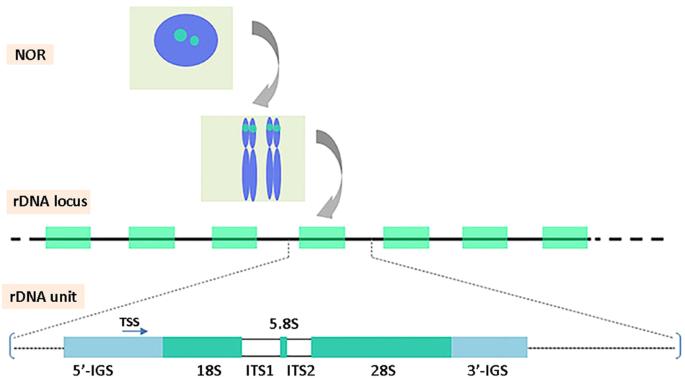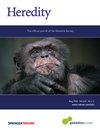基因组内 rDNA 变异--是协同进化、突变的产物,还是介于两者之间?
IF 3.1
2区 生物学
Q2 ECOLOGY
引用次数: 0
摘要
协同进化的经典模型指出,成百上千的核糖体DNA(rDNA)单元会发生同质化,使单个单元的多个拷贝在整个基因组中的均匀度高于突变频率和基因冗余的预期。虽然这一已有 50 多年历史的模型的普遍性已在一系列生物体中得到证实,但先进的高通量测序技术也发现,许多生物体中的 rDNA 同源化是部分的,在极少数情况下,甚至明显失败。许多研究都讨论了导致基因组内意外变异的潜在基础过程,但全面的理解仍有待确定。在这项研究中,我们总结了动物、真菌、植物和原生动物等多种类群中 rDNA 变异或多态性的信息。我们讨论了协同进化的定义和描述,并说明了 rDNAs 的不完全协同进化主要影响 rDNA 单元的编码区还是非编码区,以及是否会导致假基因的形成。我们还讨论了导致 rDNA 变异的因素,如种间杂交、减数分裂周期、rDNA 表达状态、基因组大小以及参与基因重组、表观遗传修饰和 DNA 编辑的效应基因的活性。最后,我们认为需要结合多种方法,针对影响不完全协同进化的遗传和表观遗传现象,全面了解 rDNA 基因组内变异的进化和功能后果。本文章由计算机程序翻译,如有差异,请以英文原文为准。

Intragenomic rDNA variation - the product of concerted evolution, mutation, or something in between?
The classical model of concerted evolution states that hundreds to thousands of ribosomal DNA (rDNA) units undergo homogenization, making the multiple copies of the individual units more uniform across the genome than would be expected given mutation frequencies and gene redundancy. While the universality of this over 50-year-old model has been confirmed in a range of organisms, advanced high throughput sequencing techniques have also revealed that rDNA homogenization in many organisms is partial and, in rare cases, even apparently failing. The potential underpinning processes leading to unexpected intragenomic variation have been discussed in a number of studies, but a comprehensive understanding remains to be determined. In this work, we summarize information on variation or polymorphisms in rDNAs across a wide range of taxa amongst animals, fungi, plants, and protists. We discuss the definition and description of concerted evolution and describe whether incomplete concerted evolution of rDNAs predominantly affects coding or non-coding regions of rDNA units and if it leads to the formation of pseudogenes or not. We also discuss the factors contributing to rDNA variation, such as interspecific hybridization, meiotic cycles, rDNA expression status, genome size, and the activity of effector genes involved in genetic recombination, epigenetic modifications, and DNA editing. Finally, we argue that a combination of approaches is needed to target genetic and epigenetic phenomena influencing incomplete concerted evolution, to give a comprehensive understanding of the evolution and functional consequences of intragenomic variation in rDNA.
求助全文
通过发布文献求助,成功后即可免费获取论文全文。
去求助
来源期刊

Heredity
生物-进化生物学
CiteScore
7.50
自引率
2.60%
发文量
84
审稿时长
4-8 weeks
期刊介绍:
Heredity is the official journal of the Genetics Society. It covers a broad range of topics within the field of genetics and therefore papers must address conceptual or applied issues of interest to the journal''s wide readership
 求助内容:
求助内容: 应助结果提醒方式:
应助结果提醒方式:


